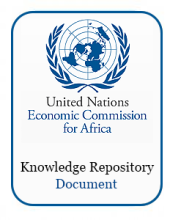Land Library
Welcome to the Land Portal Library. Explore our vast collection of open-access resources (over 74,000) including reports, journal articles, research papers, peer-reviewed publications, legal documents, videos and much more.
/ library resources
Showing items 1 through 9 of 13.Many countries are today confronted with the challenging tasks of improving the level of living and the productive capacities of their people especially in the spheres of agriculture and food production.
The document focuses on the growing demand for regional facilities for demographic research and training in Africa, the United Nations Economic commission for Africa approved, at its Ninth Session in 1968, the establishment of two new institutes, which would provide training and conduct research
Au cours des deux dernières décennies, l'Afrique a graduellement perdu les moyens qu'elle avait de nourrir sa population et de financer ses investissements dans le secteur agricole. Elle dépend de plus en plus des pays industrialisés pour la satisfaction des besoins.
The basic cause of needless poverty and hunger in the rural Africa to-day is the stagnation of its main economic base - agriculture. It has settled down to a low level of equilibrium of income, saving and investment over time.
This report seeks to look at both sides of the picture to help member countries gain an insight into the principal factors which facilitated or hindered the Plan's implementation during the period 1980-19*5.
Over the last two decades* Africa has gradually lost its ability to feed its population and finance its investment for its agricultural sector. It is increasingly depending on industrialized countries for its needs.
Dans son budget programme pour la période biennale 1986-1987 qui a été entérine par la onzième réunion do la Conférence des ministres tenue à Addis-Abeba en mai 1985 et ultérieurement approuve par la quarantième session de l'Assemblée générale des Nations Unie.
The recent FAO in-depth study on agricultural and food problems in Africa concluded that even the present inadequate food supply situation is unsustainable.
The importance of post-harvest food losses in developing countries including Africa was given the right consideration by the seventh special session of the United Nations General Assembly held in 1975.

